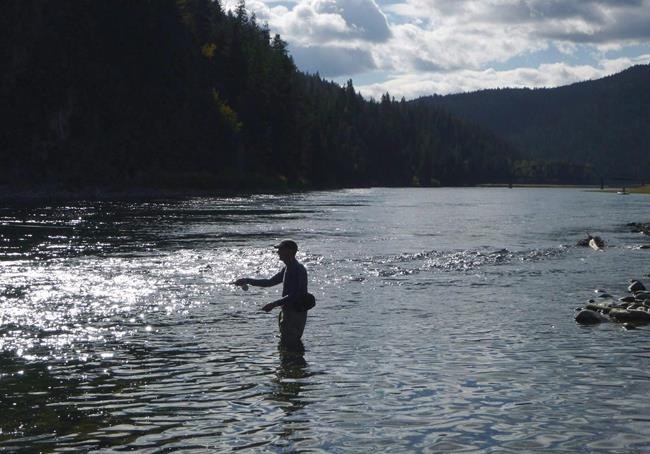WASHINGTON — U.S. Indigenous leaders from the Pacific Northwest say they won't give up trying to convince Canada's federal government to agree to a bilateral investigation of toxic mining runoff from the B.C. Interior.
Representatives from several U.S. tribes were in D.C. Tuesday and Wednesday to meet with officials from the White House, the State Department and the Department of the Interior, as well as with lawmakers on Capitol Hill.
Their cause is the same as it was 11 years ago: a bilateral investigation under the 1909 Boundary Waters Treaty into mining pollution from B.C. that they say is poisoning the waters of a vital cross-border watershed.
Communities in B.C., Washington state, Idaho and Montana have been contending for more than a decade with selenium and other toxins leaching into their watershed from coal mining operations in the province's Elk Valley.
"I'm just afraid of studying this to death. Our river is dying," said Gary Aitken Jr., vice-president of the Kootenai Tribe of Idaho, after a series of meetings Wednesday with U.S. officials.
On Friday, President Joe Biden and Prime Minister Justin Trudeau promised a tentative agreement by this summer on addressing the impact of pollution in the Elk-Kootenay watershed, which extends from B.C. through several U.S. states.
But they stopped short of what Canadian and U.S. conservationists and Indigenous leaders have been demanding for more than a decade: an investigation by the International Joint Commission, a bilateral panel established under the terms of the 1909 Boundary Waters Treaty.
Such an investigation, known in treaty parlance as a joint reference, requires both countries to agree. The U.S. has long pledged its support for the idea, but Canada has been dragging its heels for years.
Friday's announcement was a sign of progress, Aitken acknowledged. But he said it also showed that their fight is not over.
"I don't want to study more, study more — we've done enough with the studies. We know what's going on. I don't want to keep that going and watch our river die."
In their joint statement Friday, Biden and Trudeau said Canada and the U.S. would work toward "an agreement in principle by this summer to reduce and mitigate the impacts of water pollution in the Elk-Kootenay watershed."
Any forthcoming agreement on pollution from B.C.'s Elk Valley would be in partnership with tribes and Indigenous Peoples from both countries, and would aim to "protect the people and species that depend on this vital river system," it said.
The principal mining player in the region, Teck Resources, has already spent more than $1.2 billion in an effort to fix the problem, with plans for $750 million more over the next two years.
The company's strategy includes the Elk Valley Water Quality Plan, developed with help from Indigenous stakeholders, the U.S. Environmental Protection Agency, the state government in Montana, the B.C. government and Ottawa.
Teck calls the plan "among the largest and most collaborative water quality management and monitoring programs in the world." Separate water treatment and mitigation efforts have already proven effective, the company adds.
But Indigenous leaders say selenium levels in the water are still too high.
Last summer, following similar meetings with several U.S. tribes, the State Department reaffirmed its own support for a reference to investigate the transboundary impact of Canadian mining in the region.
Billy Barquin, the Kootenai tribe's attorney general, said State continues to back the group's efforts to get the International Joint Commission involved.
"Everything's still on the table," Barquin said. "We'll continue to pressure both the U.S. and Canadian governments to accept an IJC reference."
The commission is scheduled to meet next month in D.C., and Barquin said the Kootenai Tribe and others may send a delegation back to the U.S. capital "to be outside the room."
The goal there, he said, would be "to keep on reminding both national governments that this is a significant issue for the nation that needs to be addressed."
Taking the matter to court also remains an option, Barquin added.
"Ideally, it's a joint reference — both countries agree to co-operate and do the right thing," he said.
"But if that doesn't happen, there are a number of other options that we in the nation are exploring, whether it's through different legislation, more lobbying or litigation."
The watershed lies within the transboundary Columbia River basin, which has been the subject of ongoing treaty discussions since 2018. Biden and Trudeau also promised to make progress on those efforts, which are focused on new rules for flood risk management, power generation and shared environmental benefits.
This report by The Canadian Press was first published March 29, 2023.
James McCarten, The Canadian Press



